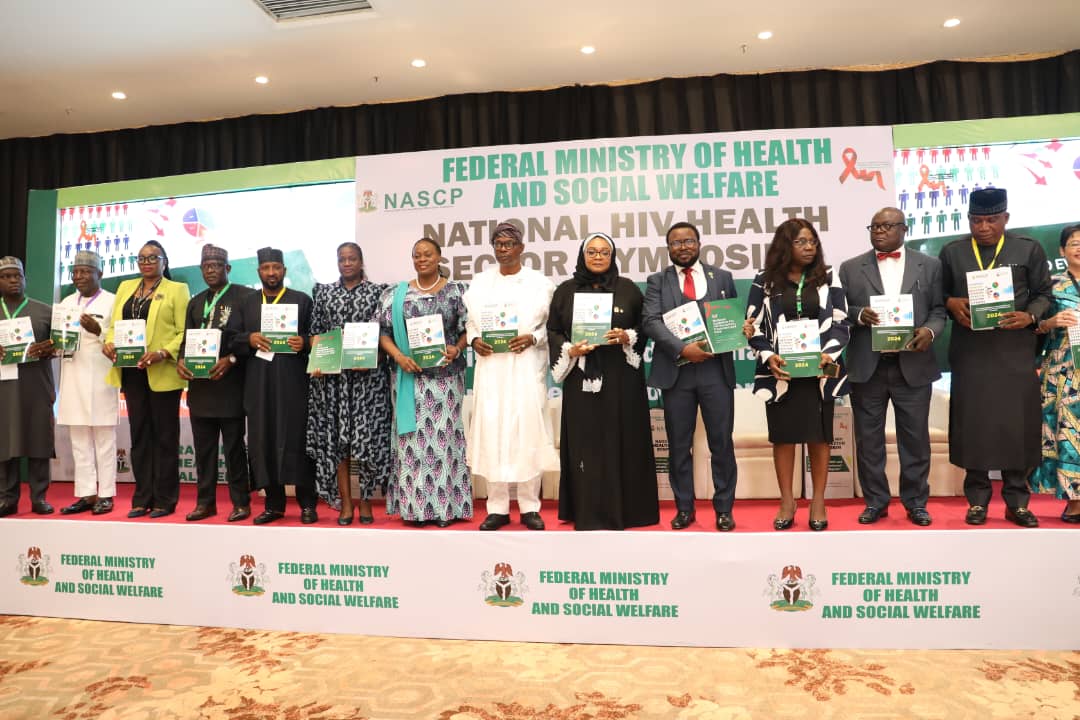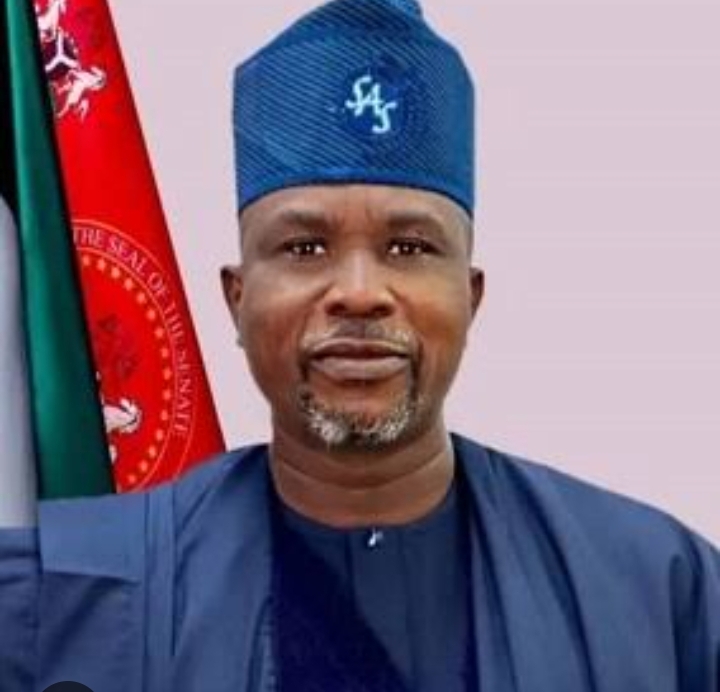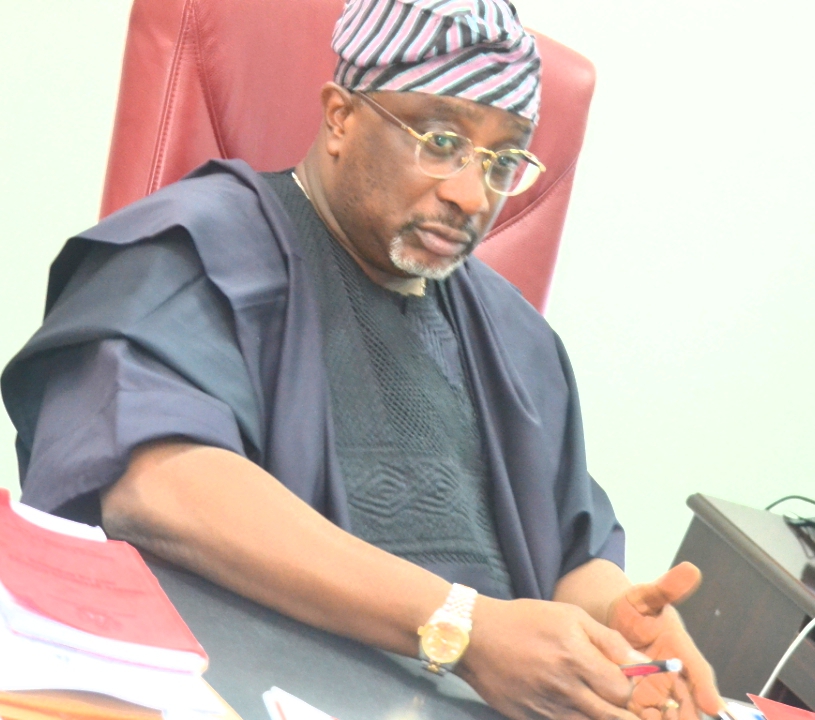
….First Lady, Health Ministry, Global Partners called for Urgent Action at HIV Health Sector Symposium
Abuja, Nigeria – The Federal Government has reaffirmed its unwavering commitment to eliminate pediatric HIV and scale up Prevention of Mother-to-Child Transmission (PMTCT) services across Nigeria.
This renewed resolve was the central theme at the National HIV Health Sector Symposium, where health authorities, development partners, and advocates converged to intensify efforts toward ending new HIV infections in children.
Delivering the keynote address on Tuesday, Minister of State for Health and Social Welfare, Dr. Iziaq Adekunle Salako, declared pediatric HIV a “State of Emergency,” vowing that the government will not relent until no Nigerian child is born with the virus. He underscored progress in the national HIV response: PMTCT coverage increased to 66% and early infant diagnosis rose to 57% in 2024, with pediatric ART access skyrocketing from 29% to 74%.
“Despite these gains, Nigeria still contributes over 9,000 new pediatric HIV infections annually,” Dr. Salako stated. “We must leave no child behind. The science is available, the tools exist—what we need now is the will to scale up proven interventions.”
Representing First Lady Senator Oluremi Tinubu, the Minister of Women Affairs reiterated support for the Free to Shine campaign, an African Union-led initiative focused on eliminating HIV, syphilis, and hepatitis among mothers and children. The First Lady called for expanded HIV testing in all hospitals, stigma-free care, and full implementation of the Triple Elimination Strategy.
“One in every five children born with HIV globally is Nigerian,” she lamented. “This is unacceptable. Every mother deserves access to quality care, and every child deserves a chance to be HIV-free.”
Permanent Secretary of the Ministry, Daju Kachollom mni, represented by Pharm. Olubunmi Aribeana, reaffirmed the Ministry’s dedication to strengthening healthcare platforms to make HIV services more accessible, equitable, and sustainable.
Development partners, including UNICEF, the Clinton Health Access Initiative (CHAI), and the National Agency for the Control of AIDS (NACA)—stressed the urgency of closing treatment gaps and investing in sustainable local responses as global donor funding declines.
Dr. Adebobola Bashorun, Director and National Coordinator of the National AIDS and STI Control Programme (NASCP), presented key recommendations for eliminating mother-to-child HIV transmission and improving pediatric HIV care:
Key NASCP Recommendations:
1. Integrated Testing and Treatment: Ensure antenatal care includes testing for HIV, syphilis, and hepatitis B, with the necessary test kits and treatment readily available.
2. Reaching Underserved Women: Expand outreach to women without access to skilled antenatal care.
3. Triple Elimination Framework: Roll out a national strategy targeting the eradication of HIV, syphilis, and hepatitis B among mothers and children.
4. Early Infant Diagnosis: Scale up use of Point-of-Care platforms like mPIMA and GeneXpert for timely diagnosis and ART initiation.
5. Service Integration at PHCs: Strengthen HIV screening and referrals across RMNCAH, nutrition, and immunization services at the primary healthcare level.
NACA Director-General Dr. Temitope Ilori and other stakeholders echoed the call for data-driven approaches, multisectoral collaboration, and community engagement to achieve Nigeria’s HIV elimination goals by 2030.
READ ALSO: NAIP Launches Drug Quality Assurance Centre to Curb Adulteration in Anambra
Prof. Utsev Honoured with 2024 Service Delivery Award at Blueprint Impact Series
The Ministry emphasized that under President Bola Ahmed Tinubu’s Renewed Hope Agenda, over 1.7 million Nigerians now access free antiretroviral treatment. The government recently approved a $200 million emergency allocation for HIV, malaria, and TB programs, underscoring its commitment despite global aid shortfalls.
The symposium accomplished with a unified pledge from stakeholders to drive forward an AIDS-free generation through bold action, innovative strategies, and shared accountability.





